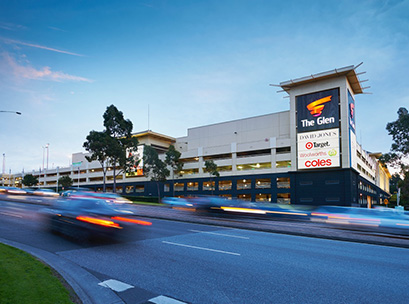
Retail landlord Vicinity Centres posted a 72 per cent slump in full-year profit to $346.1 million as the shopping mall owner warned that the outlook for retailers appeared weak.
The company said total revenue for the 12 months to June 30 dipped 3.6 per cent to $1.28 billion and it lowered its final payout from 8.2 cents to 7.95 cents, unfranked.
“The retail environment is expected to remain challenging in FY20, although economic stimulus including lower interest rates and income tax cuts may benefit retail spending,” the company said in a statement.
The retail property trust sold 12 shopping centres – including Belmont Village in Victoria and Flinders Square in Western Australia – for a total of $670 million during the financial year.
Vicinity Centres, which owns 62 shopping centres, said it was putting on hold a plan to sell more of its properties, including as part of the Vicinity Keppel Australia Retail Fund (VKF).
“The recent softening in investor demand for retail property funds globally, compounded by a crowded divestment market, is impacting retail property pricing in Australia,” chief executive Grant Kelley said.
“Consequently, we believe it is in the best interests of securityholders not to proceed with VKF, nor any further material asset divestments, in the current environment as there is more value keeping these assets on balance sheet.”
The company said funds from operations edged down 2.7 per cent from the previous corresponding period to $689.3 million – 18 cents per security – because of “non-core asset divestments and unrealised property revaluation losses”.
On a comparable basis, funds from operations per security rose by 2.0 per cent.
“These were solid outcomes considering the subdued economic environment that continues to weigh on consumer spending and consequently leasing negotiations with tenants, particularly within our Western Australian portfolio,” Vicinity Centres said.
The company partially or fully owns DFO Perth, The Strand Arcade in Sydney’s CBD, Emporium Melbourne and QueensPlaza in Brisbane.
Vicinity chairman Peter Hay said the company, which derives most of its earnings from rental income, was dealing with online competition by focusing more on tenants that offered on-site services such as food and beauty retailers.
“Online retail is a growing segment of the industry which can compete with physical retail on convenience and/or price, but often not on experience, customer engagement, or on the cost and ease of returning products when they are not quite right,” he said.
“Vicinity’s fiscal 2019 result highlights the challenging environment for retail landlords, with the REIT delivering negative total leasing spreads and a decline in comparable net property income growth,” Moody’s Investors Service said.
Vicinity Centres shares were down 1.98 per cent to $2.48 at 1415 AEST on Wednesday.





